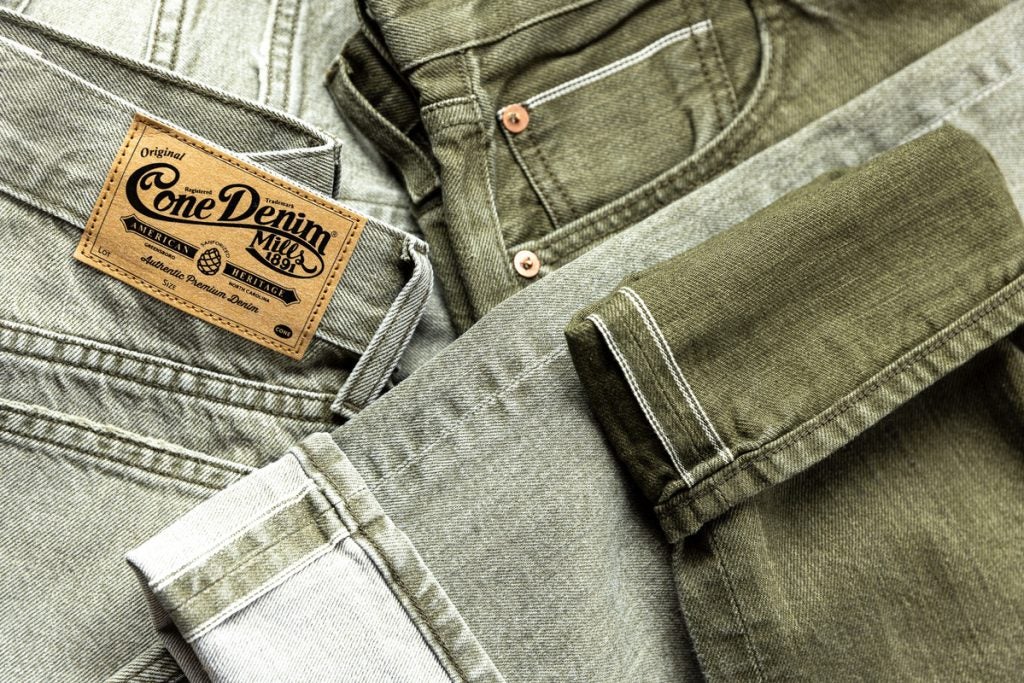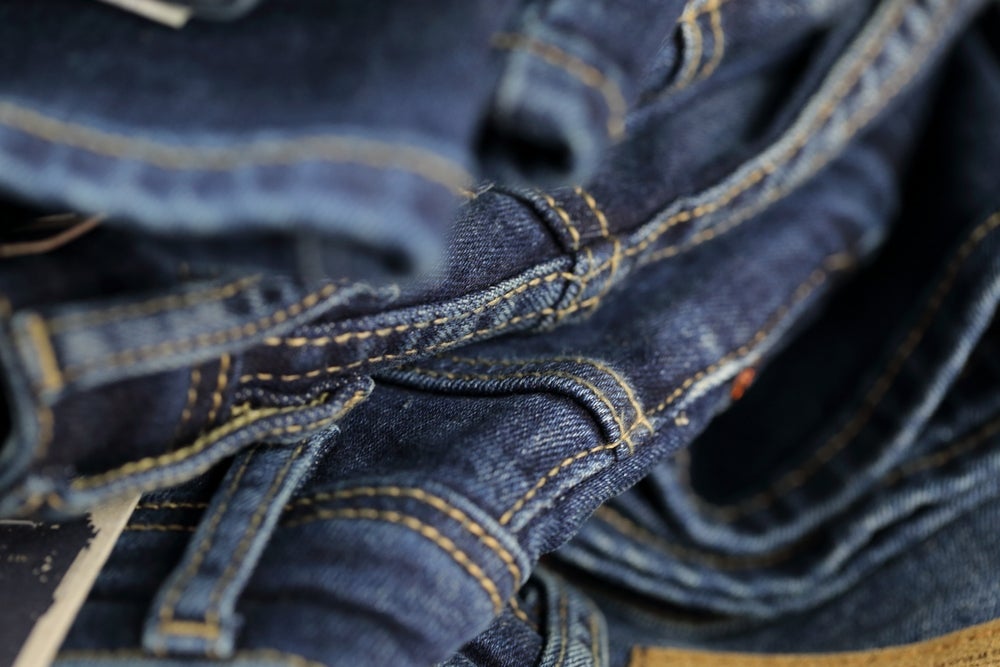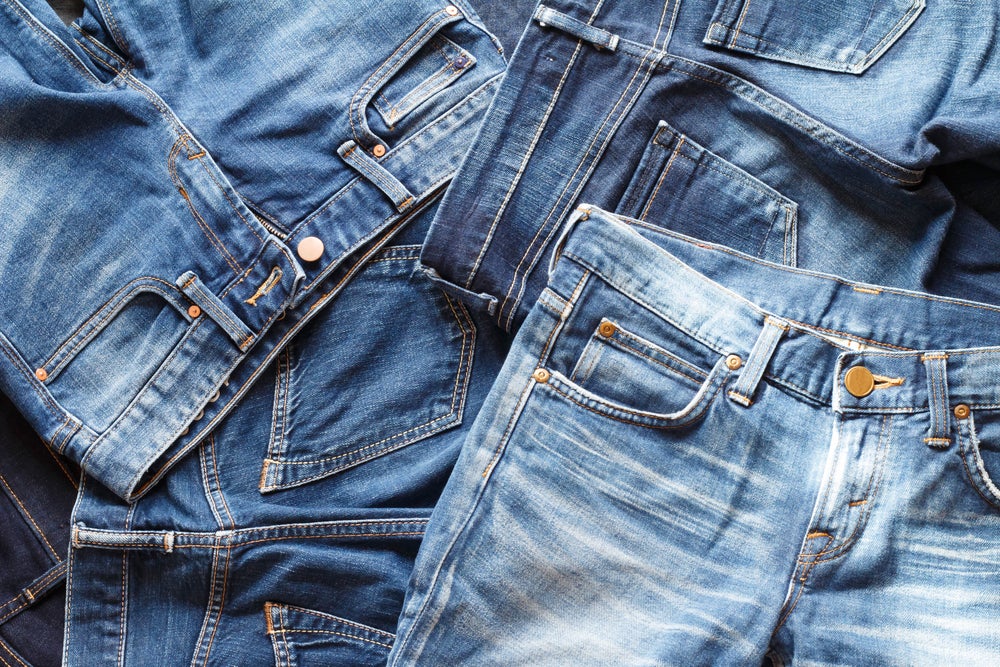
The global pandemic has done little to dampen the drive of Vietnam based ethical denim manufacturer Saitex, which has forged ahead with plans to set up a production line for people with different abilities, and set up a new model factory in Los Angeles. And its ambitions don’t end here, as founder and CEO, Sanjeev Bahl, explains.
Far from putting a pause on its eco-friendly ambitions, Saitex has been blazing a trail during the coronavirus pandemic to re-evaluate and reinvent its global supply chain.
“Since we had a lot more time on our hands, we took the year to move forward with our plans to close the loop on our circular mission, implement the Rekut initiative and improve our social impact and upcycle textile waste,” Bahl says. To that can also be added a new state-of-the-art semi-automated manufacturing facility in Los Angeles to tap into demand for localised just-in-time production.
The only B Corp-certified apparel manufacturer in Asia, Saitex operates from four facilities in Vietnam, employing over 4,000 workers and producing six million garments per year for customers including Calvin Klein, Gap, J.Crew and Ralph Lauren.
Bahl is relatively pragmatic about how Covid-19 has hit his business: it was down 20-25%, but could have been far worse.
“There are two buckets here. One is a transactional bucket and one is a strategic bucket. If you are in the transactional bucket nobody cares a toot, they will cancel your orders and throw you under the bus. It’s all about saving themselves versus protecting others at the same time,” he explains.
How well do you really know your competitors?
Access the most comprehensive Company Profiles on the market, powered by GlobalData. Save hours of research. Gain competitive edge.

Thank you!
Your download email will arrive shortly
Not ready to buy yet? Download a free sample
We are confident about the unique quality of our Company Profiles. However, we want you to make the most beneficial decision for your business, so we offer a free sample that you can download by submitting the below form
By GlobalData“We saw this in our business and our industry. Fortunately for Saitex we’ve stayed small because we work in a very strategic manner. I refuse to work transactionally. We had access to some conversations at the top, we had access to people, we were part of the strategy so we were included.
“All said and done, the business has been impacted, business is not what it used to be. But because we were in the strategic bucket, the financial impacts were not humongous. We had some small things here and there but it’s all part of the game.”
Even so, “I’ve been shocked and completely gobsmacked at the way [other manufacturers] have been treated – orders cancelled, monies not paid. That behaviour was very medieval.
“My biggest concern is about how [the pandemic] has had an impact on our mental health. We will figure it out economically, we will survive, we just have to buckle up and ride the wave. But it has taken the wind out of a lot of sails.”
Equal and open opportunities
Bahl’s concern for the mental welfare of his staff is one of the reasons behind his decision to launch a social entrepreneurship programme in February for people from disadvantaged backgrounds or who are differently-abled.
The Rekut initiative has so far provided 100 people with training and support for jobs with equal, open opportunities and a stable income. Earlier this year the programme won the Reuters Diversity & Inclusion Leader 2021 Award.
Funded entirely by Saitex, Bahl has ambitions to grow the Rekut production line to 1,000 employees – or 20% of its workforce – by 2025, to align with its inclusivity strategy.
“We, as human beings, put people into two groups; one we consider to be able, and the other unable. That’s unfortunate because no equal system has been set up by governments or businesses that allow them to have self respect and self esteem. We thought we should create social impact in a direct manner.”
Bahl describes the products the Rekut employees produce as “slow fashion.” At present, they produce bags and accessories like cushion covers and rugs for Ikea, but a capsule collection of apparel, including jackets, shirts and jeans, is launching in partnership with Atelier & Repairs, which creates one-of-a-kind designs by improving, re-designing and up-cycling existing clothing and textiles.
Saitex is also in talks with other designers to run collaborative collections, but the long-term goal is to also manufacture adaptive clothing for people with different abilities.
At present, it costs around US$3,000 to mainstream a Rekut associate. To achieve its ambition of training 1,000 will cost the company $3m, but Bahl says that instead of seeking funding he wants to make the programme open-source and share learnings with the industry.
“I want to grow this organically. I want to prove that a business run by people of different abilities does not need charity, it can stand on its own legs. Once we prove the hypothesis it will encourage other organisations to follow suit.
“If you think this programme is worthwhile, and if you would like to integrate it into one of your factories, then we would partner to help you scale up. I would like to build more of a community cooperative movement because there are 1.5bn people on this planet with this issue. I can’t find a solution for everybody at Saitex, but there is a way to do it by creating a platform for a larger manufacturing base to absorb and embrace people with different manufacturing abilities.”
Building for the future
Another challenge being embraced by Bahl is to prove manufacturing can be profitable in the West. And this is playing out with Saitex’s new semi-automated facility in Los Angeles, which officially opened this month.
“Our factory is all built on automation, artificial intelligence, robotics. It is the factory of the future in more than one way.” Currently employing around 230 people, producing 2,000 pairs of jeans per day, he puts this into perspective: “In third-world countries, for the same amount [2,000 pairs of jeans], you would need about 450 people.”
Equipped with latest technology to address speed, quality, agility and price, this includes the latest innovative laser cutting, semi-automated sewing, robotic spraying, 3D laser detailing, and futuristic one-step wash machines linked to a state-of-the-art water recycling system.
The manufacturing technology allows for an automated supply chain at speed using integrated ordering and costing with shorter lead times, giving the Los Angeles facility a competitive advantage.
But Bahl’s ambitions don’t end there. “I believe in an interconnected ecosystem, so if you are to be relevant, you need to work on a blended cost. If Vietnam is the head of the octopus and LA is just a tentacle, our ambition is to build a couple of tentacles, probably one in the UK, probably one in Europe.”
Construction is also nearly complete on a new mill in Vietnam, which is expected to be fully deployed by the middle of the year. Dyeing, weaving and finishing will be operational by the end of March, and spinning by July. The facility has the capacity to produce 18,000 pairs of jeans per day.
Bahl’s investments in the US and Vietnam reflect potential labour shifts in the Southeast Asian country.
“When companies like Samsung and Apple are in a position to pay a better wage, it becomes hard to acquire really good talent. The risk for the apparel sector is not only increasing costs, which will come one way or the other, because saturation will hit in the next 2-3 years, but my concern is more, will kids coming out of engineering school really want to come and work in an apparel factory once they have ambition?”
Driving the sustainable message
Nonetheless, Saitex has plenty to entice them. The company says it is the only large scale denim manufacturer in the world – and the only apparel manufacturer in Asia – to carry the B Corp designation for meeting high standards of social and environmental impact, and public transparency.
The manufacturer has also been rewarded with LEED (Leadership in Energy and Environmental Design) certification for its commitment to use cleaner energies. Saitex uses biomass for steam generation to replace the use of fossil fuels, it turns its waste-treatment sludge into bricks for building affordable housing, 85% of its jeans are air-dried, and 98% of its water is recycled.
More recently, it partnered on a fabric upcycling factory in Thailand called STELAPOP – an acronym for Saving Tress Eliminate Landfills and Protect Our Planet – which breaks down any textile, including cotton, nylon and polyester, and mixes it with a binder to turn it into a wood-alternative for home goods. The facility is capable of processing 12,000 garments per month, with product expected to come to market around April/May.
“We’re also continuing to work on closing the loop and are building a mill in Vietnam that will have a recycling facility as well, where we have the ability to take these textiles and shred them and then blend and fuse it with virgin cotton and make a brand-new recycled fabric,” Bahl adds. “So we have the possibility of going from waste textiles into new textiles.”
On a cliff edge
Bahl is optimistic for Saitex’s future thanks to its endeavours so far.
“We started small, we continue to be a small organisation but our vision has been to be a transparent, circular, manufacturing system. We have partnerships with cotton farms now, directly, so we can work towards bettering the lives of farmers. We have invested in Fibre Trace technology that allows a bale not to be treated as a commodity anymore. Our goal is to be the intel inside of the apparel manufacturing world. That’s the bottom line.”







